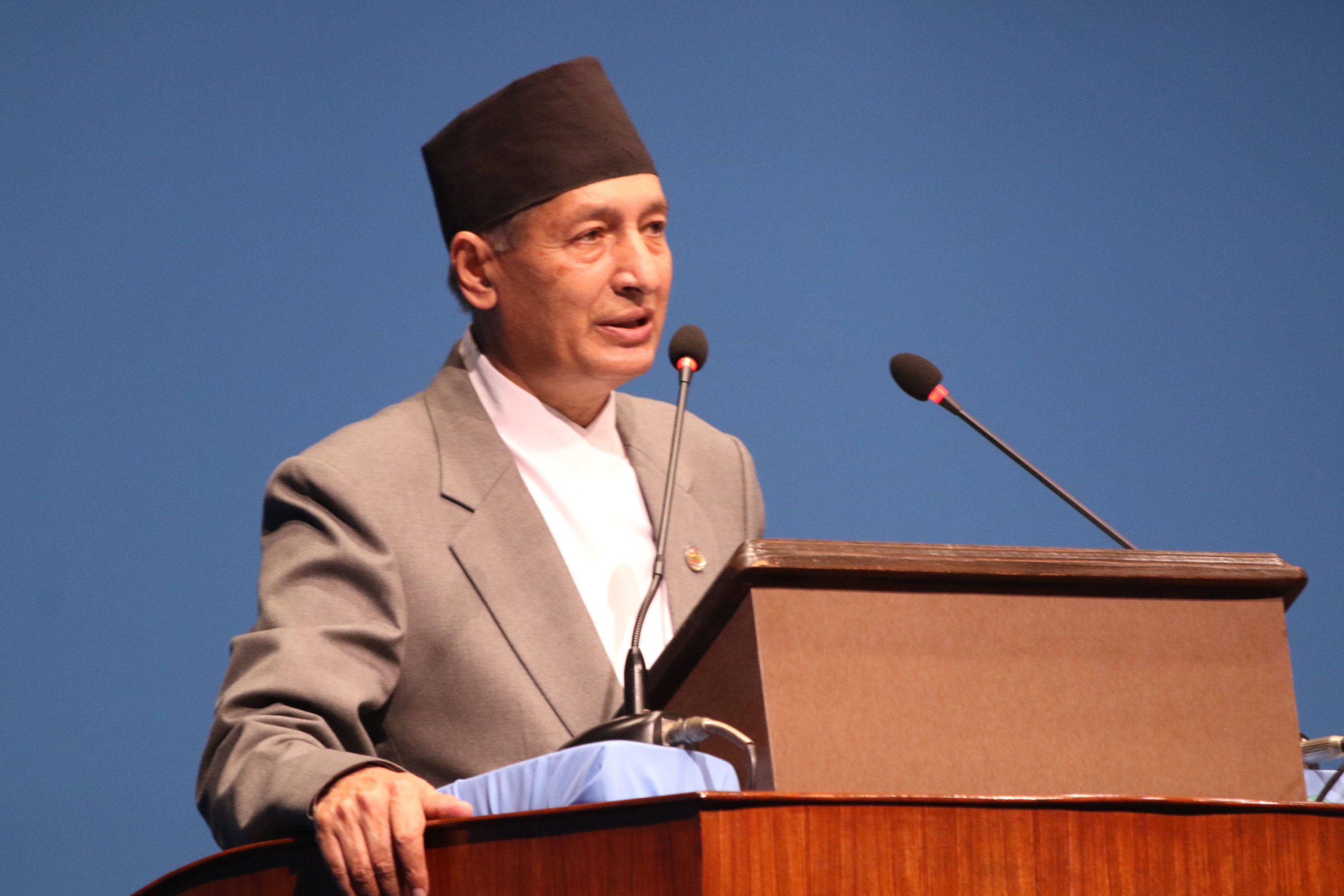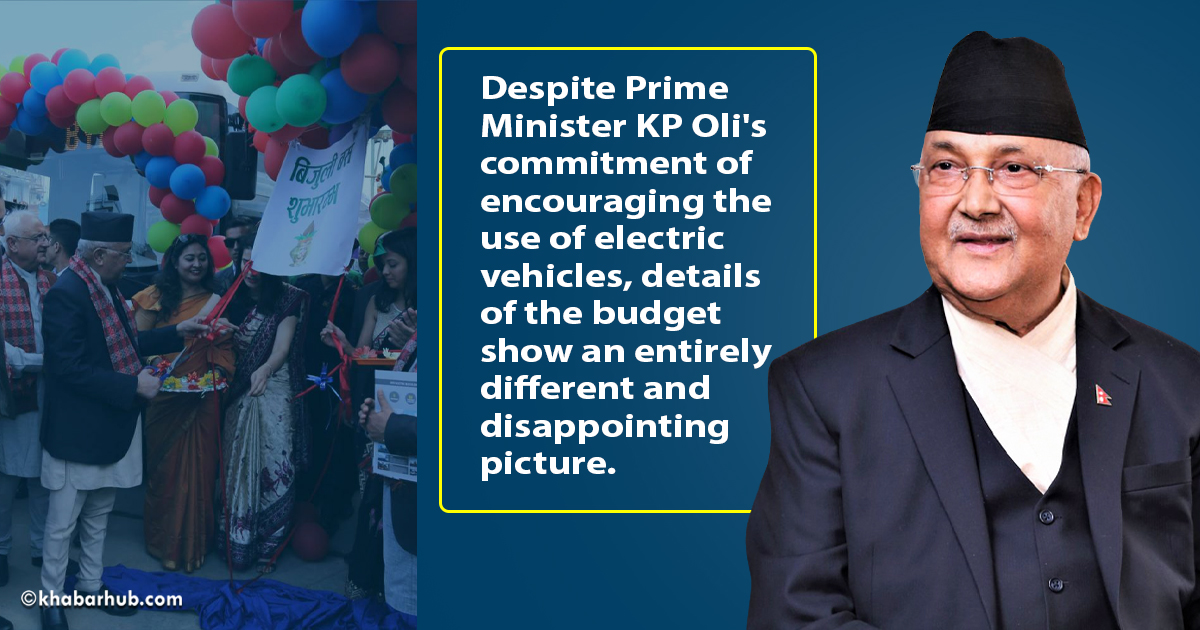KATHMANDU: Sustainable development, not merely development, is the need of the hour as collective and sustainable efforts towards protecting the assets and resources (including natural resources) for the country’s future generation is indispensable.
This means that the government or the authorities need to endeavor resilient and sustainable development. Protecting the environment or ‘green growth’ has become a global initiative, supported both by the countries (public sector) and the private companies.
Countries, including Nepal, have adopted/become signatories to United Nations agreements “SDGs: 2030 “and the “Paris Agreement on Climate Change (2015)”.
Several countries around the world have been endeavoring to bring about such changes – be it the concept of zero plastic use, or alternate sources of energy or alternate sources of fuel.
Plastic has been replaced by paper and cloth bags, coal by renewable energy (solar, wind, and hydropower) for energy generation, and fossil fuel has been replaced by electricity.
The United States of America consumes more than half of the world’s entire fossil fuel. Moving away from fossil fuel consumption, the automobile industry has been responding and has made changes in its production.

Many companies are transitioning towards electric vehicles (EVs) as an alternative source of fuel.
Many countries are providing subsidies to citizens for purchasing EVs and have also made policies that help the production of EVs become smooth and easy.
Countries that do not have automobile industries have imposed “low to no taxes” on EVs and have been encouraging EV consumption through attractive EV loans.
The government’s plan to induct battery-operated buses has not been materialized yet. Despite the good intentions from both the PM and Finance Minister of “encouraging” the use of electric vehicles, the budget for 2077 show an entirely different picture — many say a disappointing picture.
As climate change has been a major problem in the present, numerous actions are being initiated to fight climate change which includes the promotion of EVs.
Inaugurating three Sajha Yatayat electric buses last year with a good intention to support EVs in Nepal, the Prime Minister KP Oli had announced that “20% of the vehicles in Nepal will be electric by 2020”.
The government’s plan to induct battery-operated buses has not been materialized yet. Despite the good intentions from both the PM and Finance Minister of “encouraging” the use of electric vehicles, the budget for 2077 show an entirely different picture — many say a disappointing picture.
The excise tax of only 10% on battery cars has now been raised to 40-60%, with 60% customs duty. Under the past rules, electric cars had to pay 10% excise and 13% VAT and minimal custom duty.
Now, the tax formula has raised the total tax to between 120-140% which would price battery cars higher than a petrol or diesel car of the same size. A Hyundai Kona that costs Rs. 65 lakhs will now have a price tag of approximately Rs. 90 lakhs.
Nepal’s number one import good is petroleum products. Fuel driven vehicles cause more Nepali currency to go to foreign countries than electric vehicles.
Here is what the Finance Minister’s explanation mentions: The taxes on electric vehicles were increased because a significant amount of Nepali currency went to foreign countries.
As electric vehicles were more attractive for consumers due to less pollution, zero spending on fuel, and lower maintenance/servicing costs, many consumers opted for electric vehicles.
The Finance minister said that this increasing demand for electric vehicles has caused an increased amount of Nepali currency to go to foreign countries (higher demand for EVs has increased the import of EVs).
The fact is that electric vehicles are a one-time import. Fuel driven vehicles on the other hand include both the initial purchasing cost of the vehicle as well as the running cost (fuel) which are both imported.
Nepal’s number one import good is petroleum products. Fuel driven vehicles cause more Nepali currency to go to foreign countries than electric vehicles.
With electric vehicles, the operating cost is electricity which is paid to Nepal Electricity Authority (NEA) and Nepali currency does not go out of the country.
With the purchase of electric vehicles, Nepali currency only goes to foreign countries initially but the operating cost remains inside Nepal.
Hence, electric vehicles reduce the amount of Nepali currency that goes to foreign countries compared to that of fuel-driven vehicles.
Another reason provided by the government for increasing the taxes on the electric vehicle was: The high-end luxury vehicles were being imported and purchased in large numbers.
This, in fact, is true but there are a significant number of buyers who purchase the entry-level and mid-range electric vehicles.
The government could have, instead, introduced subsidies and slashed taxes for the buyers who are willing to purchase entry-level and mid-range vehicles.
Yet another reason to increase taxes on electric vehicles according to the government is that all the South Asian countries have imposed at least 100% tax on electric vehicles.
This is misleading information as most of the South Asian countries are slashing taxes on electric vehicles to encourage more environmentally-friendly vehicles.
In Pakistan, manufacturers, assemblers, and suppliers in the EV and related infrastructure industries have benefitted from lower taxes.
They are only required to pay 1% GST for EVs as opposed to 17% for regular vehicles. Furthermore, the import duty for charging equipment is also being slashed to 1%.
In India, however, there is a small increment in the new taxation of EVs. Commercial EVs will now be levied a 40% tax as opposed to the previous 25%.
Even though the tax on EVs has been increased in India, the rate of increment is lower than in Nepal. Moreover, the tax increment in India is initiated to protect domestic automobile industries that manufacture EVs.
The tax increment can even force foreign companies to start EV production plants in India, instead of India importing such EVs.
While the majority of nations are providing subsidies to encourage the use of EVs, Nepal has taken a huge step backward.
Countries like Norway, Germany, China, etc. have become good examples for other countries. In an economic stimulus package following the Corona crisis, the German government has included several measures to promote a green agenda, including electric mobility.
The most noticeable one is that the state is doubling its share of the environmental bonus in the form of a new “innovation premium”.
However, the decision of the government of Nepal to highly increase taxes on EVs can put a negative image of Nepal in the global arena showing Nepal’s less concern and contribution towards the battle of climate change.
Similarly, in China, electric vehicle producers can get government subsidies of as much as 25,000 Yuan ($3,500) per vehicle. Buyers are exempt from the 10% purchase tax levied on gasoline cars.
Likewise in Norway, since 2017 it has been up to the local governments to decide the incentives regarding access to bus lanes and free municipal parking.
The Parliament has agreed on implementing a 50% rule, which means that counties and municipalities cannot charge more than 50% of the price for fossil fuel cars on ferries, public parking and road toll.
The Norwegian Parliament has decided on a national goal that all new cars sold by 2025 should be zero-emission (electric or hydrogen).
As a support to the nations and responsibility to fight climate change, multinational automobile companies like KIA, Hyundai, etc. are producing more electric vehicles than petrol/diesel-run vehicles. Their goal is to produce 100% electric vehicles until the year 2027.
As stated earlier, the PM of Nepal showed hope for sustainable development by promoting EVs in Nepal.
However, the decision of the government of Nepal to highly increase taxes on EVs can put a negative image of Nepal in the global arena showing Nepal’s less concern and contribution towards the battle of climate change.
As the impact of climate change is serious, Nepal must promote EVs to replace petrol/diesel-run vehicles. The capacity and available and planned electricity generation in Nepal is more than enough to support the EVs.
The government of Nepal should consider introducing electric vehicle-friendly policies to encourage more EV riders.
This will help Nepal to portray its positive image in the global platform as its commitment to fight global climate change.
Furthermore, Nepal might achieve an opportunity to have localization of sustainable technologies like EVs in the days to come.
It would have been an opportunity to have public transportation, initially in Kathmandu Valley, solely using EVs like in Shenzhen, China where all 16,000 buses are EVs and all taxis soon will be EVs.
Overall, a positive image in the global market can attract international donors and investors, including funds from the Green Climate Fund (GCF) to invest in Nepal.The government should have created the condition for the provision of environmentally beneficial goods and services.
Finally, the question is: Has the 2020/21 budget envisioned the PM’s vision towards EV friendly Nepal? Or is it a communication gap, an execution gap, something else?
(With inputs from Nitish Lal Shrestha)








Comment